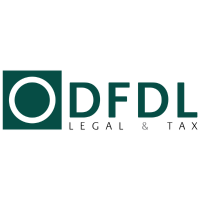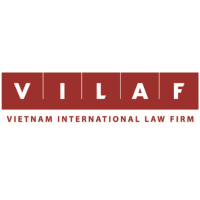

Senior legal manager | Industrial and Commercial Bank of China - Hanoi City Branch





Nguyen Thi Phuc
Senior legal manager | Industrial and Commercial Bank of China - Hanoi City Branch
Team size: Five
What are the most significant cases and transactions that your legal team has recently been involved in?
The legal practice of my team is quite broad, encompassing various areas, including employment matters, intellectual property matters, privacy, and security issues, guarantees, letters of credit, syndication facilities, working capital loans, commercial business transactions, and more. All legal work in-house is carried out by us, except for complex litigation.
The enforcement of overdue debt and security assets is one of the primary operations of banks. Advising on legal matters arising from the lenders and borrowers in relation to restructuring, enforcement, and the interpretation of provisions in finance documents is a significant aspect. The related legal work may include advising, preparing, and discussing debt restructuring, recovery, and enforcement plans with the finance parties concerning actions against the borrower, the guarantors, the security providers, and the security assets, including the available remedies under the security documents and applicable laws. Second, advising, preparing, and finalising the enforcement documents with the relevant parties or other documents required for the enforcement of security assets and actions against the borrower and guarantors. Third, advising, preparing, and finalising the necessary registrations with the relevant state authorities regarding debt recovery and the enforcement of security assets and guarantees, and so on.
Could you share an example of a time when you came up with an innovation that improved how your legal team works and did not come at a large expense?
The legal review of contracts and documents usually takes a significant amount of working time. To improve the efficiency of the legal review process and reduce the time required, we have conducted research and proposed necessary solutions. After considering our current internal human resources and the bank’s professional requirements, we have decided to dedicate our time to building a series of standardised professional document contracts. These contracts encompass a wide range of documents, including those signed between the bank and the customer, as well as the documents and contracts that our customers are required to submit to the bank during their operations. As a result, upon completing the construction of these standardised professional document contracts, our workload has been significantly reduced. Our legal team can now spend more time on reviewing other key legal issues. This approach can be considered an innovation considering the method we use to perform our in-house legal work.
How do you see the general counsel role evolving in Vietnam over the next five-ten years?
Unlike other positions, the general counsel plays a key role in the managerial hierarchy. The general counsel would be the most powerful person below the CEO in some organisations.
The general counsel in a corporate law department serves as the bridge between top management and the department. The higher they are placed in the organisation, the greater the prestige, authority, and effectiveness of the department. The general counsel should be involved in key decisions and fully engaged with the company’s activities.
The general counsel may be either more of a lawyer or more of a manager, depending on the size of the company and its legal department. In smaller companies and departments, the general counsel remains primarily a legal practitioner. Depending on available resources, they typically handle general legal matters and supervise outside counsel on matters requiring extensive legal activity or those requiring particular expertise that are not available in-house.
Vietnam is a developing country with many new enterprises established annually. Therefore, the demand for the general counsel is increasing in terms of both quantity and qualification. The general counsel will play an important and essential role in their organisations over the next five to ten years in Vietnam.
What are some of the main trends impacting your industry in Vietnam?
In my opinion, the main trends impacting the banking industry may include the rapidly growing digital revolution, economic fragmentation, and ethical standards.
The first trend is the rapidly growing digital revolution, which creates digital economies focused on the production, collection, and protection of data. This growth brings new opportunities and markets, especially in the banking sector, but it also increases regulatory and cybersecurity risks.
The second trend is economic fragmentation, which is increasing due to rising populism, nationalism, and protectionism. It poses a threat to globalisation, causing uncertainty in the supply chain, global supply, and international management.
The final significant trend that will impact the future of the banking industry is the rise of ethical standards. As consumers become more vocal about environmental and social issues, they will expect companies to play an increasingly larger role in solving these problems. This trend will continue to accelerate as investment moves toward mainstream adoption and as efforts to decarbonise economies continue to multiply.